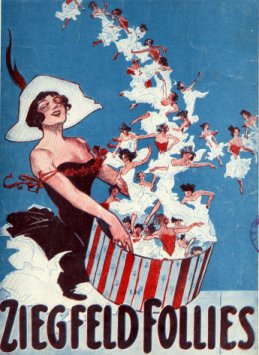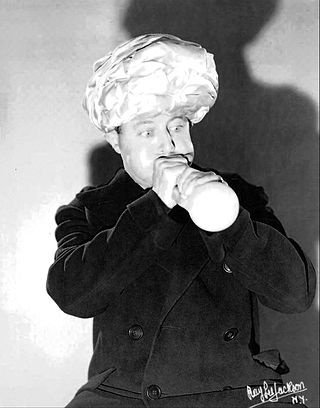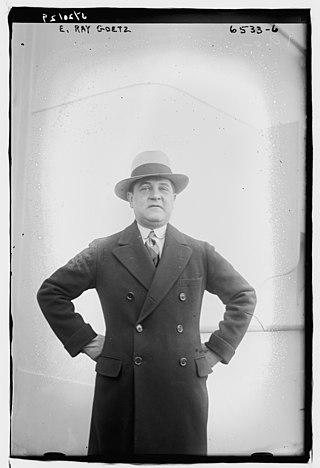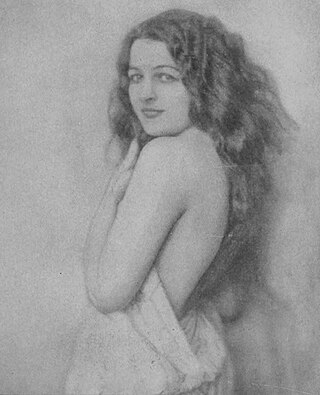
Otto Abels Harbach, born Otto Abels Hauerbach was an American lyricist and librettist of nearly 50 musical comedies and operettas. Harbach collaborated as lyricist or librettist with many of the leading Broadway composers of the early 20th century, including Jerome Kern, Louis Hirsch, Herbert Stothart, Vincent Youmans, George Gershwin, and Sigmund Romberg. Harbach believed that music, lyrics, and story should be closely connected, and, as Oscar Hammerstein II's mentor, he encouraged Hammerstein to write musicals in this manner. Harbach is considered one of the first great Broadway lyricists, and he helped raise the status of the lyricist in an age more concerned with music, spectacle, and stars. Some of his more famous lyrics are "Smoke Gets in Your Eyes", "Indian Love Call" and "Cuddle up a Little Closer, Lovey Mine".

The Band Wagon is a 1953 American musical romantic comedy film directed by Vincente Minnelli, starring Fred Astaire and Cyd Charisse. It tells the story of an aging musical star who hopes a Broadway show will revive his career. However, the play's director wants to make it a pretentious retelling of the Faust legend and brings in a prima ballerina who clashes with the star. Along with An American in Paris (1951) and Singin' in the Rain (1952), it is regarded as one of the finest Metro-Goldwyn-Mayer musicals, although it was a box-office disappointment on first release.

The Ziegfeld Follies were a series of elaborate theatrical revue productions on Broadway in New York City from 1907 to 1931, with renewals in 1934, 1936, 1943, and 1957. They became a radio program in 1932 and 1936 as The Ziegfeld Follies of the Air.

Jack Selig Yellen was an American lyricist and screenwriter. He is best remembered for writing the lyrics to the songs "Happy Days Are Here Again", which was used by Franklin Roosevelt as the theme song for his successful 1932 presidential campaign, and "Ain't She Sweet", a Tin Pan Alley standard.
Barnum is an American musical with a book by Mark Bramble, lyrics by Michael Stewart, and music by Cy Coleman. It is based on the life of showman P. T. Barnum, covering the period from 1835 through 1880 in America and major cities of the world where Barnum took his performing companies. The production combines elements of traditional musical theater with the spectacle of the circus. The characters include jugglers, trapeze artists and clowns, as well as such real-life personalities as Jenny Lind and General Tom Thumb.

Jumbo is a musical produced by Billy Rose, with music and lyrics by Richard Rodgers and Lorenz Hart and book by Ben Hecht and Charles MacArthur.
Martin Charnin was an American lyricist, writer, and theatre director. Charnin's best-known work is as conceiver, director, and lyricist of the musical Annie.
Paris is a musical with the book by Martin Brown, and music and lyrics by Cole Porter, as well as Walter Kollo and Louis Alter (music) and E. Ray Goetz and Roy Turk (lyrics). The musical, which premiered on Broadway in 1928, was Porter's first Broadway hit. The musical introduced the song "Let's Do It, Let's Fall in Love" sung by the show's star, Irene Bordoni. The story involves a young man from a very proper family in Newton, Massachusetts whose mother is horrified by his intention to wed a French actress.

Animal Crackers is a musical play with music and lyrics by Bert Kalmar and Harry Ruby and a book by George S. Kaufman and Morrie Ryskind. The musical starred the Marx Brothers and is set at the Long Island Home of Mrs. Rittenhouse; a character portrayed by Margaret Dumont in the 1928 production on Broadway.

La Strada is a musical with lyrics and music by Lionel Bart, with additional lyrics by Martin Charnin and additional music by Elliot Lawrence. It is based on the 1954 film of the same name by Federico Fellini. Bart wrote the score in 1967 and made a demonstration recording, although the musical was not produced until 1969, when it was famously cancelled after just one performance. The musical's book was written by Charles K. Peck, Jr., who also produced it on Broadway.

Joe Cook was an American vaudeville performer. A household name in the 1920s and 1930s, Cook was one of America's most popular entertainers, and he headlined at New York's famed Palace Theatre. After appearing on Broadway he broke into radio.
Sunny is a musical with music by Jerome Kern and a libretto by Oscar Hammerstein II and Otto Harbach. The plot involves Sunny, the star of a circus act, who falls for a rich playboy but comes in conflict with his snooty family. This show was the follow-up to the 1920 hit musical Sally, both starring Marilyn Miller in the title roles, and it was Kern's first musical together with Hammerstein. Sunny also became a hit, with its original Broadway production in 1925 running for 517 performances. The London production starred Binnie Hale.

The 44th Street Theatre was a Broadway theater at 216 West 44th Street in the Theater District of Manhattan in New York City from 1912 to 1945. It was originally named Weber and Fields' Music Hall when it opened in November 1912 as a resident venue for the comedy duo Weber and Fields, but was renamed to the 44th Street Theatre in December 1913 after their tenure at the theatre ended. It should not be confused with the Weber and Fields' Broadway Music Hall, often referred to as simply Weber and Fields' Music Hall and also known as Weber's Music Hall or Weber's Theatre, which was used by both Weber and Fields or just Weber from 1896 through 1912.

Edward Ray Goetz was an American composer, lyricist, playwright, theatre director, and theatrical producer. A Tin Pan Alley songwriter, he published more than 500 songs during his career, many of them originally written for the New York stage. His songs were recorded by several artists, including Judy Garland, Al Jolson, and Blossom Seeley. He was active as both a lyricist and composer for Broadway musicals from 1906 through to 1930, collaborating with artists like George Gershwin, Cole Porter, Sigmund Romberg, and A. Baldwin Sloane to create material for the theatre.

Rain or Shine is a 1930 American pre-Code film directed by Frank Capra and starring Joe Cook and Louise Fazenda. The film was adapted from a hit Broadway musical of the same name and was originally planned as a full-scale musical. Due to the public backlash against musical films, all musical numbers were discarded before release. This move proved to be prudent as the film was a box office success, continuing the streak of hits Capra directed for the young Columbia Pictures studio.

Patrick Walshe was an American dwarf character actor and circus performer who specialized in impersonating and portraying animals. He is best known for playing Nikko, the head of the Winged Monkeys in the MGM film The Wizard of Oz (1939). He appeared in only a few films, as most of his work was in theater, vaudeville and circus. Throughout his vaudeville career, he was a frequent collaborator of Lew Fields and Joe Cook.

Janet Velie was an American actress who was primarily known for her performances in Broadway musicals. She first came to prominence portraying the title roles in the musicals La La Lucille (1919) and Mary (1920), and then had success in the Ed Wynn music revues The Perfect Fool (1921) and The Grab Bag (1924). In 1925 she created the role of confidence woman Penelope Martin in Irving Berlin's The Cocoanuts; a role she reprised in 1927. She was the sister of actor Jay Velie and sometimes performed in productions with him. In addition to her work in theatre, she also appeared in a few short films.
Helen Lynd, also known as Helene Lynch, was an American actress and comedienne active on stage and in film.
Little Red Riding Hood is a musical in two acts with lyrics by Harrison Ward and music by composers Edward E. Rice, Fred J. Eustis, Charles Dennée, T. W. Connor, and B. Gilbert. The musical's book was authored by playwright George T. Richardson and was loosely modeled after British pantomime versions of the classic European fairy tale of the same name. It also included characters from other classic fairy tales. It premiered on Christmas Eve 1899 at the Boston Museum, and then ran for further performances in Boston in January 1900 at the Hollis Street Theatre before transferring to Broadway.
Owen Murphy was an American songwriter, film maker, and writer for radio, film, and theatre. He worked as a lyricist, composer, and playwright for Broadway musicals and as a songwriter for Tin Pan Alley in the 1920s and 1930s. As a film maker he was an early maker of industrial films. He also was a writer for comedian Joe Cook for both the stage and radio.













